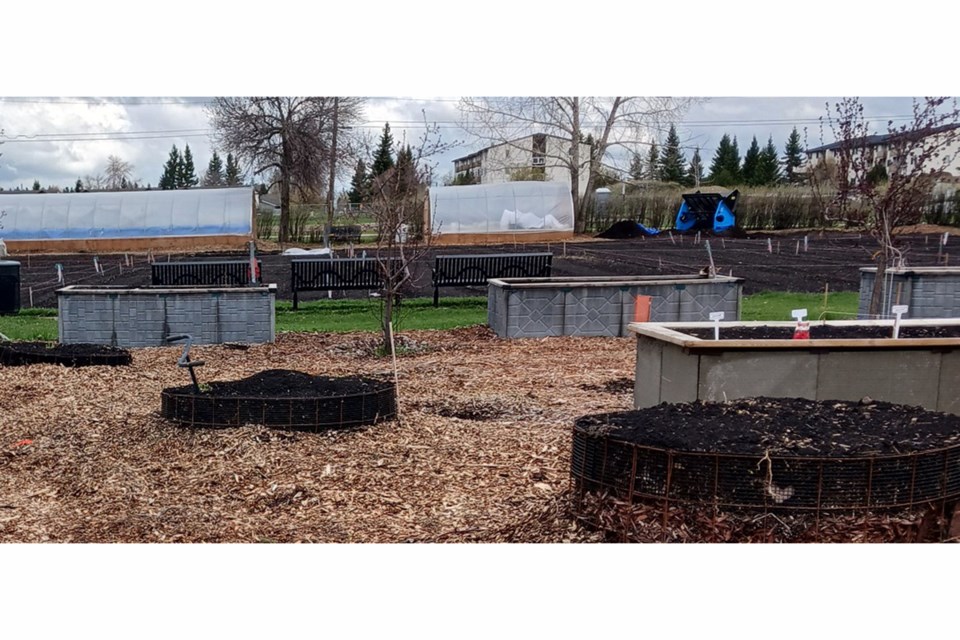ST. PAUL - The St. Paul Community Garden is prepped for another busy growing season, with all 42 plots at the Town Garden Site rented out, and 18 sites at the Transfer Station Site also rented out.
The community garden has also started a greenhouse project to help gardeners plant and harvest crops that require longer growing seasons, says David Robinson, chairman with the society. Some of the plants have been growing in the greenhouse include tomatoes, cucumbers and corn.
"The unique feature of our greenhouse is that it relies on heat from the sun during the day and heat generated from compost during the nights," explains Robinson.
The setup allowed gardeners to start seeding in the third week of March and the greenhouse will be able to provide up to 1,000 plants to gardeners as they start planting their plots in May.
"The demand for garden plots and raised garden beds increases every year," says Robinson.
The number of plots at the Town Garden Site has actually been reduced to allow for the compost heated greenhouse, a standard greenhouse, and a compost screener at the site, which is located behind the townhall building.
The Transfer Station Site, which is located outside of the Town's limits, to the north, has been expanded. But still, all the plots are claimed.
"Raised garden beds are also in demand, with all 35 beds rented out at Heritage Homes in addition to nine raised beds rented out at the Town Garden Site," says Robinson.
The community garden is about more than just growing plants. The group continues to "support the Town of St Paul's environmental endeavours by providing an eye pleasing, yet functional, green space and by diverting large amounts of organic material from the landfill with our composting project," explains Robinson.
This season, the garden society also plans to take part in the national Communities in Bloom initiative, as part of the Town of St. Paul's entry into the competition.
The theme for this year is "The Year of the Garden."
"We hope that all aspects of the garden will contribute to the Town's chances of winning. Increasing food security, enhancing physical and mental well being and providing positive environmental impacts should reflect positively on the Town's entry," says Robinson.

.jpg;w=960;h=640;bgcolor=000000)


